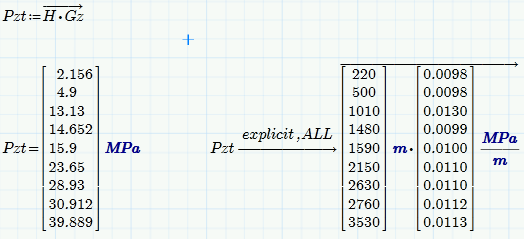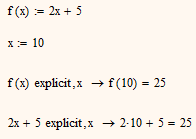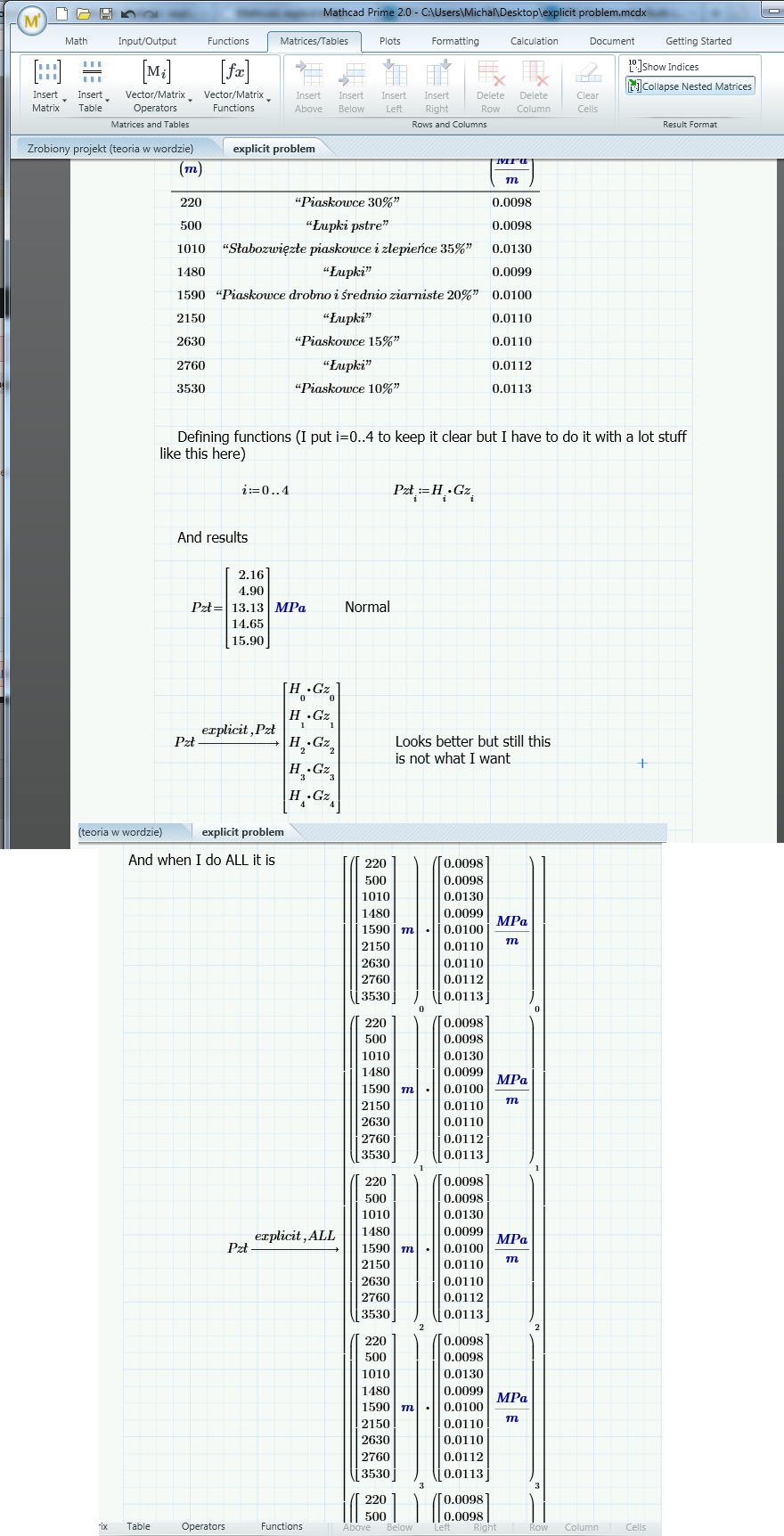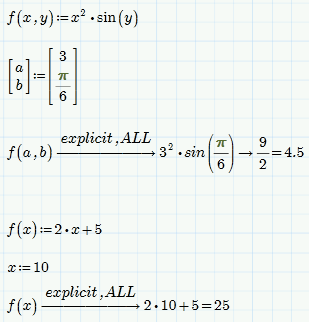Community Tip - Learn all about PTC Community Badges. Engage with PTC and see how many you can earn! X
- Subscribe to RSS Feed
- Mark Topic as New
- Mark Topic as Read
- Float this Topic for Current User
- Bookmark
- Subscribe
- Mute
- Printer Friendly Page
develop equations?
- Mark as New
- Bookmark
- Subscribe
- Mute
- Subscribe to RSS Feed
- Permalink
- Notify Moderator
develop equations?
I am wondering if it is possible to get a result like this:
f(x):=2*x+5
x:=10
f(x)=2*10+5=25
I mean that Mathcad puts the x and shows the first step because retriving only f(x)=25 is less usefull than seeing from what values it is done
I do not want the programm to do it step by step like
f(x)=2*10+5=20+5=25
I just need to see the first step
ofc it is just a simply example to make it clear
Solved! Go to Solution.
- Labels:
-
Other
Accepted Solutions
- Mark as New
- Bookmark
- Subscribe
- Mute
- Subscribe to RSS Feed
- Permalink
- Notify Moderator
Mathcad's explicit,ALL is right - the results are derived by picking a specific element from a vector and this is shown.
I know what you want to see, but it looks you can't get it.
The closest I could come up with was using the full vectors and the vectorization operator. See attached.

- Mark as New
- Bookmark
- Subscribe
- Mute
- Subscribe to RSS Feed
- Permalink
- Notify Moderator
There is only very limited support for what you are asking for using symbolic evaluation with keyword "explicit", but it doesn't do what you demand if used for the function definition.

I mean that Mathcad puts the x and shows the first step
Thats exactly what explicit will do, unfortunately it shows the first step only, not the following. In case of f(x) the first step is to insert 10 for x.
- Mark as New
- Bookmark
- Subscribe
- Mute
- Subscribe to RSS Feed
- Permalink
- Notify Moderator
I forgot to mention that I work in Prime 2.0
So according to what you say there is no chance that if I have a lot of defined functions and a set of variables and now I could change it in one line ![]()
Thank anyway it is still much easier!
- Mark as New
- Bookmark
- Subscribe
- Mute
- Subscribe to RSS Feed
- Permalink
- Notify Moderator
Mik Kon wrote:
I forgot to mention that I work in Prime 2.0
"explicit" should work in Prime the same way
So according to what you say there is no chance that if I have a lot of defined functions and a set of variables and now I could change it in one line

Not sure what you mean with "change variables in one line"?
- Mark as New
- Bookmark
- Subscribe
- Mute
- Subscribe to RSS Feed
- Permalink
- Notify Moderator
Can any of you solve this problem, I also tried putting Hi, H0 nothing works

is there any chance to make it more good looking?
I mean the matrix is too big, instead of showing 1st, 2nd ... item of this matrix
- Mark as New
- Bookmark
- Subscribe
- Mute
- Subscribe to RSS Feed
- Permalink
- Notify Moderator
Mathcad's explicit,ALL is right - the results are derived by picking a specific element from a vector and this is shown.
I know what you want to see, but it looks you can't get it.
The closest I could come up with was using the full vectors and the vectorization operator. See attached.

- Mark as New
- Bookmark
- Subscribe
- Mute
- Subscribe to RSS Feed
- Permalink
- Notify Moderator
Just realized that "explicit" works differently in Prime and does what you want 😉






